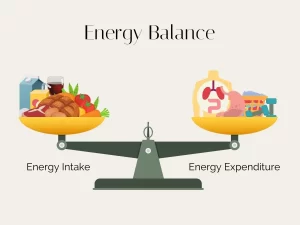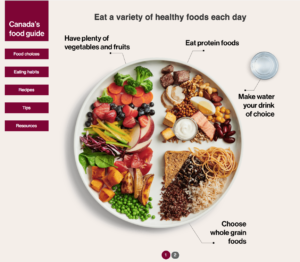Imagine waking up each day with boundless energy, feeling confident in your own skin, and knowing that you’re taking proactive steps to live a long, vibrant life. Maintaining a healthy body weight is not just about fitting into your favorite jeans or looking good; it’s about nurturing your physical and mental well-being. In this article, I’ll share invaluable tips that have helped countless individuals, including myself, maintain an optimal body weight while enjoying a fulfilling lifestyle. Get ready to embark on a journey towards a healthier you, filled with vitality, self-assurance, and a zest for life!
-
Caloric Deficit:
 One of the most effective approaches to achieving and maintaining a healthy weight is by creating a caloric deficit. This means consuming fewer calories than your body expends. There are several ways to achieve this, such as reducing your food intake or increasing your physical activity. For instance, if you’ve maintained the same weight for months, it indicates that you’ve been consuming roughly the same number of calories as you’ve been burning. Conversely, if you’ve been gaining weight, it suggests that your caloric intake exceeds your expenditure. To lose weight, a caloric deficit is essential. Personally, I find the “myfitnesspal” app helpful for tracking my calories. Based on my activity level and weighing around 145 lbs, I aim for approximately 2000 calories per day to maintain my current weight.
One of the most effective approaches to achieving and maintaining a healthy weight is by creating a caloric deficit. This means consuming fewer calories than your body expends. There are several ways to achieve this, such as reducing your food intake or increasing your physical activity. For instance, if you’ve maintained the same weight for months, it indicates that you’ve been consuming roughly the same number of calories as you’ve been burning. Conversely, if you’ve been gaining weight, it suggests that your caloric intake exceeds your expenditure. To lose weight, a caloric deficit is essential. Personally, I find the “myfitnesspal” app helpful for tracking my calories. Based on my activity level and weighing around 145 lbs, I aim for approximately 2000 calories per day to maintain my current weight. -
Staying Active:
 Being physically active is another vital aspect of maintaining a healthy weight. This can involve various activities, such as brisk walking, engaging in active sports, using cardio equipment at the gym, or going for a run. Personally, I prefer long walks outdoors or on a treadmill. I also make an effort to stay active throughout the day, utilizing my 15-minute breaks for short walks. Investing in a step-tracking device, like a smartwatch, can be a great motivator to achieve daily step goals. Regular physical activity helps burn extra calories and contributes to overall weight management.
Being physically active is another vital aspect of maintaining a healthy weight. This can involve various activities, such as brisk walking, engaging in active sports, using cardio equipment at the gym, or going for a run. Personally, I prefer long walks outdoors or on a treadmill. I also make an effort to stay active throughout the day, utilizing my 15-minute breaks for short walks. Investing in a step-tracking device, like a smartwatch, can be a great motivator to achieve daily step goals. Regular physical activity helps burn extra calories and contributes to overall weight management. -
Weight Training:
 Weight training plays a fundamental role in achieving a healthy weight. Building and preserving muscle mass are equally important when it comes to maintaining a healthy body composition. Focusing solely on a caloric deficit and cardiovascular exercises can lead to muscle loss. To gain or preserve muscle mass, it’s crucial to incorporate weight training into your routine at least 3-4 days a week. Weight training offers additional benefits such as increased bone density, improved joint health, better mental well-being, and enhanced sleep quality. By minimizing rest periods between weightlifting sets to 1-1.5 minutes, you can even transform weight training into an aerobic activity, benefiting your cardiovascular health.
Weight training plays a fundamental role in achieving a healthy weight. Building and preserving muscle mass are equally important when it comes to maintaining a healthy body composition. Focusing solely on a caloric deficit and cardiovascular exercises can lead to muscle loss. To gain or preserve muscle mass, it’s crucial to incorporate weight training into your routine at least 3-4 days a week. Weight training offers additional benefits such as increased bone density, improved joint health, better mental well-being, and enhanced sleep quality. By minimizing rest periods between weightlifting sets to 1-1.5 minutes, you can even transform weight training into an aerobic activity, benefiting your cardiovascular health. -
Food Choices:
 Making wise food choices is essential for achieving weight loss goals and overall health. While it’s technically possible to lose weight by solely focusing on a caloric deficit, the quality of the food you consume also matters. Remember, the ultimate goal of maintaining a healthy body weight is to enjoy a disease-free, long life. Reducing or eliminating processed foods, which can contribute to inflammatory responses in the body, can support your journey towards a healthier lifestyle. Here are a few tricks I follow: I prefer cooking my own meals, allowing me to control the ingredients for better health choices. I aim to keep my meals simple, using fewer ingredients. Additionally, I purchase high-quality meats and freeze them for later use or meal prepping.
Making wise food choices is essential for achieving weight loss goals and overall health. While it’s technically possible to lose weight by solely focusing on a caloric deficit, the quality of the food you consume also matters. Remember, the ultimate goal of maintaining a healthy body weight is to enjoy a disease-free, long life. Reducing or eliminating processed foods, which can contribute to inflammatory responses in the body, can support your journey towards a healthier lifestyle. Here are a few tricks I follow: I prefer cooking my own meals, allowing me to control the ingredients for better health choices. I aim to keep my meals simple, using fewer ingredients. Additionally, I purchase high-quality meats and freeze them for later use or meal prepping. -
Personalization:
 Discovering what works best for you may take time and experimentation. Your genetic predisposition, lifestyle, work environment, location, and food preferences all play a role. Personally, I’ve found success with a low-carb, high-protein, and high-fat diet, following a ratio of 30:35:35. This means 30% of my calories come from carbohydrates, 35% from protein, and the remaining 35% from fat sources. However, it’s important to note that this may not work for everyone. Carbohydrates can cause insulin spikes, leading to the storage of unused calories as fat. Due to my low activity lifestyle, a low-carb diet suits me well as proteins and fats are digested more slowly and have less impact on insulin levels compared to carbs. Explore different dietary approaches, such as vegetarian or Mediterranean diets, to find what aligns with your needs and preferences.
Discovering what works best for you may take time and experimentation. Your genetic predisposition, lifestyle, work environment, location, and food preferences all play a role. Personally, I’ve found success with a low-carb, high-protein, and high-fat diet, following a ratio of 30:35:35. This means 30% of my calories come from carbohydrates, 35% from protein, and the remaining 35% from fat sources. However, it’s important to note that this may not work for everyone. Carbohydrates can cause insulin spikes, leading to the storage of unused calories as fat. Due to my low activity lifestyle, a low-carb diet suits me well as proteins and fats are digested more slowly and have less impact on insulin levels compared to carbs. Explore different dietary approaches, such as vegetarian or Mediterranean diets, to find what aligns with your needs and preferences.
Conclusion: Maintaining a healthy weight is a lifelong journey that significantly contributes to our overall well-being. By creating a caloric deficit, staying physically active, incorporating weight training, making mindful food choices, and personalizing your approach, you can achieve your weight management goals. Remember, gradual changes and finding what works best for you are key to sustainable results. Start taking steps towards a healthier you today!



So informative! Thank you for sharing.
Thank you so much Harleen!